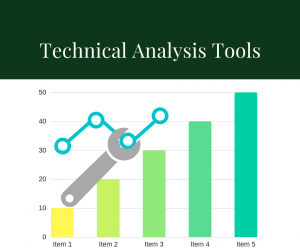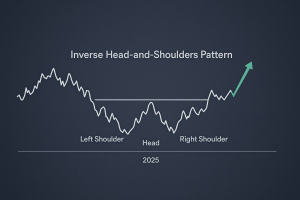Introduction
In October 2025, Argentina’s economic turmoil reached a new peak as the Argentine peso plummeted to an unprecedented low of 1,477 per US dollar. This sharp depreciation occurred despite substantial financial interventions from the United States, including a $20 billion currency swap agreement and additional debt market support. The situation underscores the deep-rooted challenges facing Argentina’s economy, characterized by political instability, dwindling foreign reserves, and investor skepticism.
The Peso’s Unprecedented Decline
The Argentine peso’s decline to 1,477 per US dollar marks a significant milestone in the country’s ongoing currency crisis. This sharp depreciation reflects a loss of investor confidence, exacerbated by political uncertainties and economic mismanagement. Despite the US Treasury’s efforts to stabilize the currency through a $20 billion currency swap agreement, the peso’s value continues to erode, signaling a lack of faith in the government’s ability to implement effective economic reforms.
US Interventions And Their Limited Impact
The United States, under the leadership of Treasury Secretary Scott Bessent, has extended substantial financial support to Argentina in an attempt to stabilize its economy. This support includes a $20 billion currency swap agreement and additional debt market assistance. However, these interventions have yielded limited success. The peso’s continued decline suggests that the measures are insufficient to address the underlying economic issues plaguing Argentina. Analysts point to the country’s dwindling foreign reserves, estimated at under $5 billion excluding liabilities, as a critical factor undermining the effectiveness of external support.
Political Instability And Its Economic Consequences
Political instability plays a pivotal role in Argentina’s economic challenges. President Javier Milei’s administration, characterized by its libertarian economic policies, faces mounting opposition and declining public support. The government’s unorthodox approach to economic management, including controversial austerity measures and attempts to control inflation through currency interventions, has sparked widespread discontent. The upcoming midterm elections on October 26 are expected to be a critical juncture, with the potential to either bolster or further erode investor confidence in the government’s economic strategy.
Dwindling Foreign Reserves And Debt Pressures
Argentina’s foreign reserves are rapidly depleting, exacerbating the country’s economic vulnerability. The central bank’s reserves have fallen to dangerously low levels, with estimates placing them under $5 billion, excluding liabilities. This depletion leaves the country ill-prepared to meet its upcoming debt obligations, including significant foreign debt payments scheduled for 2026. The combination of low reserves and mounting debt pressures creates a precarious financial situation, heightening the risk of a broader economic collapse.
Market Reactions And Investor Sentiment
Investor sentiment remains deeply negative, with markets expressing skepticism about the effectiveness of both domestic policies and international support. Non-deliverable forward contracts indicate expectations that the peso could weaken past 1,600 per dollar within two months, reflecting concerns about continued depreciation. While US dollar-denominated Argentine bonds experienced a slight uptick following the announcement of US interventions, they remain well below levels seen after the initial American support, indicating persistent investor apprehension.
The Role Of The United States And Geopolitical Implications
The United States’ involvement in Argentina’s economic stabilization efforts carries significant geopolitical implications. The $40 billion aid package, comprising both currency support and debt relief, is contingent upon President Milei’s political success in the forthcoming elections. Former President Donald Trump has explicitly stated that US support will be withdrawn if Milei’s party, La Libertad Avanza, fails to perform well in the elections. This conditional support risks entangling the US in Argentina’s internal political dynamics, potentially leading to perceptions of interference and complicating diplomatic relations.
Austerity Measures And Public Backlash
President Milei’s administration has implemented stringent austerity measures in an attempt to stabilize the economy. These measures include significant cuts to public spending and attempts to reduce inflation through controlled currency devaluation. However, these policies have faced strong opposition from various sectors of society, leading to protests and a decline in public support. The government’s unpopularity, exacerbated by a recent electoral defeat in Buenos Aires province, has further undermined investor confidence and complicated efforts to implement necessary economic reforms.
Outlook And Future Prospects
The outlook for Argentina’s economy remains bleak, with several challenges on the horizon. The upcoming midterm elections will be a critical determinant of the government’s ability to maintain political stability and implement effective economic policies. Without significant reforms to address structural issues such as inflation, fiscal deficits, and foreign debt, Argentina faces the prospect of continued economic decline. The international community, particularly the United States, will need to carefully assess the effectiveness of their support and consider alternative strategies to assist Argentina in navigating its economic crisis.
Conclusion
Argentina’s economic crisis, marked by the peso’s unprecedented decline and mounting financial pressures, presents a complex challenge for both the nation’s leadership and the international community. While US interventions have provided temporary relief, they have proven insufficient in addressing the underlying issues. The combination of political instability, dwindling foreign reserves, and investor skepticism creates a volatile environment that threatens to destabilize the country’s economy further. The upcoming elections will serve as a pivotal moment in determining Argentina’s economic trajectory and its relationship with international partners.



